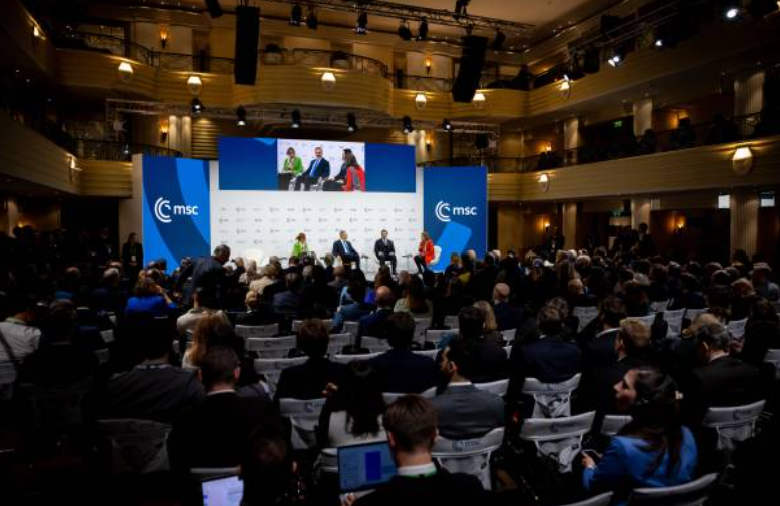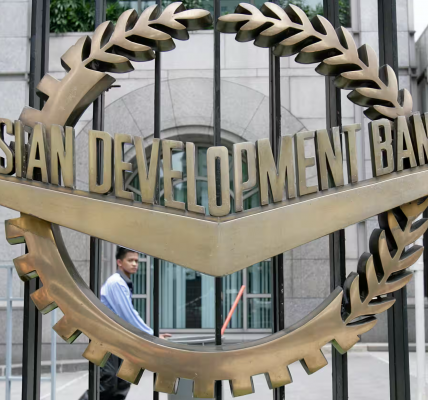The Shifting Transatlantic Relations: Implications of the Munich Security Conference
*Disclaimer: upon request of the author: “All opinions and thoughts expressed are the authors, and are not linked to any organisation or group”.*
This year’s Munich Security Conference was quite extraordinary. Presumably, everyone expected that two major subjects would dominate the agenda of the summit. However, Trump’s vice president, JD Vance, astonished everyone at the conference—or, in other words, everyone following the summit. The reason for this was Vance’s rather unfriendly attitude toward the United States’ long-term allies, particularly Britain. Vance accused European governments of retreating from their core values and ignoring voter concerns on migration and free speech.
Some argue that Vance’s speech was intended for domestic political consumption in the United States, which is partly true. However, it also served as a clear indication of what Europe can expect from the new American administration. It has become increasingly evident that the new administration does not wish to entangle itself in European or Middle Eastern affairs and prefers to remain detached from the turmoil occurring in these regions. The first signals of this shift were received when Trump withdrew from several international organizations. In what appeared to be a redefinition of America’s global role, Trump introduced a series of decisions that pulled the U.S. out of multiple UN organizations and halted funding for major international programs, triggering reactions ranging from support to sharp criticism.
During his presidency, Joe Biden repeatedly reaffirmed U.S. support for NATO, in contrast to Trump, who criticized NATO members and insisted that all members increase their military spending to 4% of GDP instead of the required 2%. By 2024, only 18 NATO members were expected to meet the 2% threshold. While campaigning for the Republican presidential nomination, Trump went even further, suggesting that if a NATO country failed to spend enough on its own defense, he would “encourage” other countries to attack it—presumably referring to Russia. President Biden strongly condemned these remarks, calling them “shameful” and “un-American.” This reaction is somewhat paradoxical, as Stephen Walt argued that American dominance stems from its influence within international organizations and its positive relations with Western allies.
Indeed, Steve Bannon, the ideological architect of the Trump administration, holds significant influence over Trump’s policies, despite not holding an official government position. This new ideological framework posits that the U.S. is no longer a manufacturing and trade superpower. Following World War II, the U.S. exploited the benefits of global trade, but in the present era, this is no longer the case. As a result, the new administration sees little reason to provide full security for global trade routes. In a broader sense, this shift signifies a departure from the U.S.’s traditional role as the world’s gendarme and superpower, instead favoring a model more akin to a hegemonic kingdom. From this perspective, Trump’s previous statements about Canada and Greenland begin to make more sense.
Implications for Britain and the Western Block
Under these recent developments, Europe will have to bear greater responsibility for its own security—an issue already voiced by French President Emmanuel Macron. In previous years, Macron expressed concerns about NATO’s stability, stating that a stronger Europe would allow the continent to become more autonomous within the alliance. He argued for a strategic shift:
“An alliance isn’t something I should depend on. It’s something that I should choose, something I work with. We must rethink our strategic autonomy.”
For Britain, these developments serve as a warning that the new U.S. administration is far from being a long-term, reliable ally. This realization is reminiscent of the aftermath of the 1956 Suez Crisis when Britain understood the necessity of a strong partnership with the U.S. on the global stage.
Historically, the United Kingdom has consistently sought to mitigate external powers gaining dominance in Europe, whether it be Russia, Germany, or France. This approach can be traced back to the early 19th century, where Britain’s primary concern was maintaining the balance of power within Europe to safeguard its imperial and global interests. This policy became particularly evident during the period of the “Great Game,” a geopolitical rivalry between the British and Russian empires for influence in Central Asia. While Britain’s immediate focus was the protection of its imperial holdings, especially in India, the expansionist ambitions of Russia posed a direct threat to British security and the broader European equilibrium.
In the 19th century, Russia’s growing influence in the Balkans were viewed by Britain as destabilizing forces within Europe. This concern was not limited to Russia alone; France, under Napoleon, had also presented a challenge to the European balance, especially with its imperial ambitions. Britain’s opposition to French expansionism during the Napoleonic Wars is a prominent example of its engagement in preventing any single power from dominating Europe. Similarly, when Germany began its rise as a unified power in the late 19th and early 20th centuries, Britain’s involvement in both World Wars was driven by the need to prevent German hegemony in Europe, recognizing the dangers of a dominant central European power.
In the 20th century, the emergence of the Soviet Union and its ideological exportation of communism reshaped British strategy, necessitating a shift toward opposing Soviet influence across Europe during the Cold War. Britain, as a core member of NATO and the Western alliance, adopted a policy of containment, focusing on preventing Soviet encroachment on Western Europe. This policy of containment became central to British foreign policy, highlighting the country’s historical role in ensuring that no single power—whether Russia or any other—could dominate Europe.
In the current context of the Ukraine war, Britain’s response to Russian aggression reflects this long-standing policy of containment, as Russia’s efforts to destabilize Ukraine and Eastern Europe echo past Russian expansions. Britain recognizes the strategic importance of preventing any power, particularly Russia, from asserting dominance in Europe. By supporting Ukraine both diplomatically and militarily, the United Kingdom reaffirms its commitment to preserving European stability and security. This approach ensures that Britain continues to play a crucial role in maintaining the balance of power that has shaped its foreign policy for nearly two centuries, a role rooted in both historical precedent and contemporary geopolitical realities
As a result, Britain, alongside its Western allies, may be compelled to assume greater responsibility in supporting Ukraine—potentially for the first time since World War II—without direct U.S. backing.






